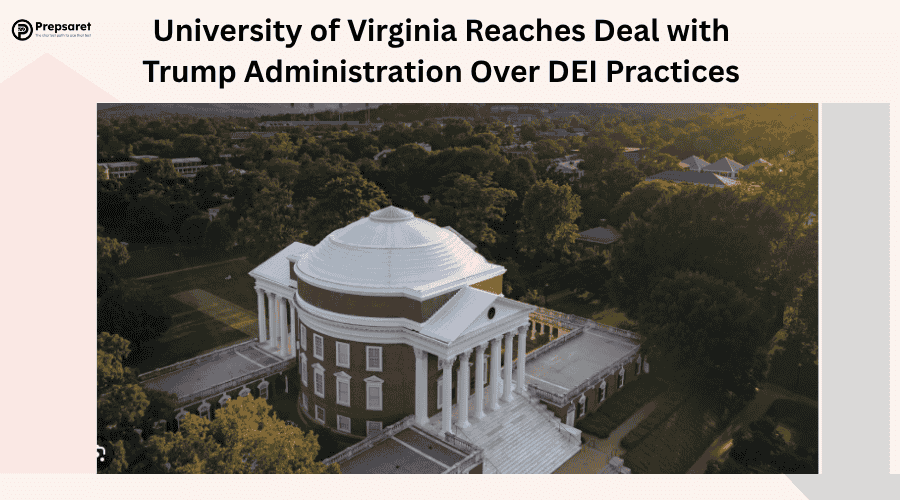Key Points:
- University of Virginia (UVA) agrees to adopt federal guidance on diversity, equity and inclusion (DEI) in exchange for a pause in Justice Department investigations.
- The deal requires quarterly compliance reporting through 2028 and marks the first such settlement with a public university.
- No financial penalty is imposed; formerly instrumented DEI offices will be dismantled and reforms monitored under the agreement.
Reforms and Oversight: What the Agreement Entails
The Justice Department has finalized an agreement with UVA to halt five ongoing civil-rights investigations tied to the university’s admissions, hiring and DEI practices. Under the settlement, UVA will follow the Trump administration’s legal interpretation of unlawful race-based discrimination in admissions and employment.
The university must submit certified quarterly data to the Department of Justice through 2028 and will be treated as fully eligible for federal grants while the reforms are underway. UVA’s interim president, Paul Mahoney, emphasized that the agreement “required no monetary payments” and preserves academic freedom, while still binding the institution to real reforms.
University officials say they believe the settlement reflects the “best available path forward” to end the period of federal scrutiny. The university’s prior president, James Ryan, resigned in June amid mounting federal pressure.
Implications for Higher Education and Federal Funding
This agreement represents a significant shift in how public institutions are engaging with federal oversight of DEI initiatives. Previous settlements—such as those with Columbia University and Brown University—involved private institutions and hefty financial penalties.
By contrast, UVA’s deal imposes no fine but binds the university to structural changes and extended reporting requirements. The university board had already voted earlier this year to dismantle its Office of Diversity, Equity, and Inclusion, responding to state and federal pressure.
This settlement may signal to other public universities that compliance with federal directives on DEI is increasingly a condition for continued access to research funding and federal programs.
Legal experts caution, however, that the agreement may pose risks to institutional autonomy if universities feel compelled to align their programs with political directives. The requirement that the president personally certify compliance each quarter underscores how federal oversight is becoming more embedded in campus governance.
As UVA begins implementing its reforms, the broader question remains how these changes will affect campus culture, recruitment, and diversity initiatives—and whether other universities will follow suit.

